Confusion is the hallmark of our over-communicated society. Amid explosion of news media and the resulting excess of mental stimuli, we often find ourselves at an intersection of truths—or supposed truths. So much information is being bombarded at us from all sides that it’s become nearly impossible to tell fact from fiction. In some areas of life, this confusion is more serious than others—our health, for instance. For every new finding that confirms a belief, there is one that rubbishes it. In such a scenario, how do we make up our minds? For example, there is no doubt that drinking water is essential, but must we all have eight glasses of water? Or should we allow our thirst mechanism to dictate how much we drink? What about ‘trans fats’? Do they deserve their reprehensible reputation? Do dark chocolates actually help our heart or is it a belief propagated by smart PR professionals of chocolate companies?
While we cannot solve every puzzle, in the following pages, we have attempted to clear the air around many popular health notions, formed and fuelled by the mass media.
How important is breakfast really?
In the olden days, breakfast was a large meal comprising calorie-dense foods. It was the heaviest meal of the day—and appropriately so, as the rest of the day involved much physical labour. Cut to the 21st century: Advances in technology and transportation have made physical activity almost redundant. We work on our desks, participate in conferences via internet, meet friends on Facebook, watch films on home theatre [in the comfort of our living rooms], order food at home and so on.
 If we compare our lifestyles with those of our ancestors, we probably sit more in a year than our ancestors did in their entire lives. With such sedentary lifestyles, hasn’t breakfast lost its significance? The answer is ‘No’.
If we compare our lifestyles with those of our ancestors, we probably sit more in a year than our ancestors did in their entire lives. With such sedentary lifestyles, hasn’t breakfast lost its significance? The answer is ‘No’.
The first meal of the day is important as it is crucial to your metabolism, physical inactivity notwithstanding. Those who eat breakfast regularly have a higher metabolism than those who skip it. What’s more, breakfast eaters also tend to eat less during the day and consequently manage their weight better.
However, before you decide to go gorging every morning, understand that even though breakfast continues to be important, what has changed is how much you eat. Today, the amount you eat for breakfast depends on factors such as how hungry you are in the morning, how heavy your last meal was and the interval between the two.
So, you don’t have to go all the way and have eggs, potatoes, milk, toast, cereal, fruits and everything that you see on a typical breakfast spread. Even a bowl of oats or a glass of milkshake works well if that’s all you feel like having. If you wake up and you’re not hungry, it means your metabolism is just limping along and is not functioning at its best. But “it’s still important to eat breakfast even if you’re not hungry,” insists fitness trainer Bob Greene.
Our verdict: Eat a healthy breakfast every day—and in our book, muffins, pastries and bacon don’t count as healthy.
Must I have supplements?
First things first. Ideally, your diet should meet your nutritional needs. But here’s a catch. Our modern lifestyle and dietary habits often lead to certain nutrient deficiencies. Supplements are a good way to bridge this nutrient gap. What you must not forget is that supplements aren’t intended to be a substitute for food as they don’t have many of the other benefits of whole foods—fibre, for instance. That’s why supplements are called so—because they add, they don’t replace.
As to which supplements you must take and in what dose, there are no off-the-shelf plans. Your individual requirement for nutrition supplementation will vary depending on many factors such as your age, gender, food preferences, the type of work you do and the like. For instance, women are recommended to take calcium supplements. But the age and the prescribed dosage varies from one woman to another. Some may need to start early in life with large doses, while others may need small doses even after menopause.
Our verdict: Nutritional supplements are great so long as you use them to supplement, not substitute. We recommend that you consult your physician before starting off on a supplement so that you get exactly what you need. Stick to only the recommended dosage.
Should I believe in research?
The studies and researches you read in the news or on the internet appear persuasive. However, remember that often, most of the studies published are not even complete—only the conclusion is stated and other vital information such as its duration, number of participants, presence of a control group and whether subjects are humans or animals, is omitted. Many of them are carried out on a small sample size with no control group. And few of them haven’t even been tried on humans!
It takes several hundred researches and years of experience and observation to say with reasonable authority and accuracy whether a finding holds good. It is for this reason that prominent bodies such as the American FDA [Food and Drug Administration] painstakingly collate and whet out several small and big researches to draw a conclusion about the benefits or perils of the food in question.
So, be wary of embracing every research you read about and don’t be in a hurry to apply those changes to your lifestyle. Just because research journals say it has to be done, it need not be the best thing for you. If a food or health habit does not agree with you [it makes you feel more ill than well], it’s bad for you, even if every research body and the FDA approves of it. After all, the results of a study are seldom 100 per cent positive or negative.
Is coffee a virtue or a vice?
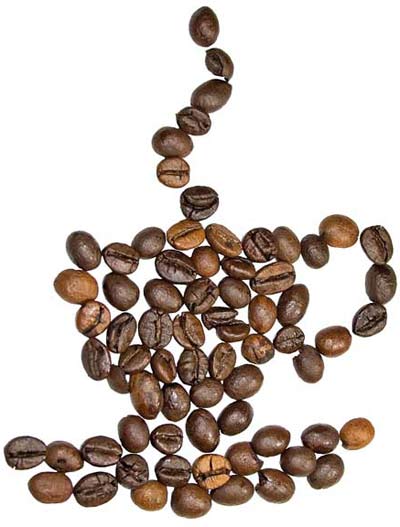 Many coffee drinkers complain of dehydration, increased anxiety, mood fluctuations and poor bone mineral density. On the other hand, coffee has been credited with helping prevent type-2 diabetes, Parkinson’s disease and Alzheimer’s disease. Therein lie the ‘beans’ of great confusion.
Many coffee drinkers complain of dehydration, increased anxiety, mood fluctuations and poor bone mineral density. On the other hand, coffee has been credited with helping prevent type-2 diabetes, Parkinson’s disease and Alzheimer’s disease. Therein lie the ‘beans’ of great confusion.
It’s unlikely that millions around the world are drawn to coffee because of health reasons. After all, there are alternatives such as green tea or omega-3 fatty acids that have similar health benefits and yet they are nowhere near coffee on the popularity charts. We reckon that coffee fans are enamoured by its rich taste and aroma, combined with the immediate adrenaline rush it brings. If your question is, “Should I continue drinking my favourite beverage?” we’d say, change the question.
When there is no conclusive data about the good and the bad effects of any food, including coffee, the question is not “should you” or “shouldn’t you?”, it’s “how much is safe to consume?”
Anything more than two cups a day is too much. David Posen, MD, author of The Little Book of Stress Relief, calls coffee, ‘stress in a cup’. Because, he says, most people drink far more coffee than they can tolerate.
And beware of falling into the trap of believing that the decaf variety is better. Because though decaf coffee contains about 80 per cent – 95 per cent less caffeine, it retains most of the harmful chemicals of regular coffee. Also, decaf is made by a chemical process using solvents. So what you’re actually having is a lot worse than regular coffee.
Our verdict: When in doubt, be safe—avoid coffee. If you can’t do without coffee, restrict your consumption to less than two cups a day—and drink plenty of water to avoid getting dehydrated.
Is exposure to sun dangerous?
 Skin experts insist that you slather up on a high SPF sunscreen before you dive into a pool, take your pooch for a walk, step out during winters and even laze around the house. Shielding your skin from the harmful UVA and UVB rays of the sun delays the early signs of ageing such as dark spots, wrinkles and fine lines. The biggest boon, of course, is that it protects from skin cancer. And this makes sunscreen an essential part of your skin care kit; your bodyguard against the rude sun.
Skin experts insist that you slather up on a high SPF sunscreen before you dive into a pool, take your pooch for a walk, step out during winters and even laze around the house. Shielding your skin from the harmful UVA and UVB rays of the sun delays the early signs of ageing such as dark spots, wrinkles and fine lines. The biggest boon, of course, is that it protects from skin cancer. And this makes sunscreen an essential part of your skin care kit; your bodyguard against the rude sun.
But don’t our bodies need sunlight to produce vitamin D? After all, even children are aware that deficiency of vitamin D leads to weak bones and diseases like rickets. Your body needs vitamin D for many things—strong bones, good mood, and proper metabolism. Lack of vitamin D impairs the insulin function, exacerbating type-2 diabetes. Low vitamin D also causes calcium deficiency. Did you know that low vitamin D increases your risk of contracting inflammatory disease of the intestines?
If you’re thinking that you can rely on supplements and food for your vitamin D requirement, it’s time to think again. Even though nutritional supplements contribute to your body’s vitamin D requirements, you still need the sunlight. Ideally, 90 per cent of our body’s requirement should be met by exposure to the sun’s rays. Not only is it convenient, it’s also the primary source. And this source is blocked by sunscreens. Even weak sunscreens with an SPF of 8 hamper your body’s ability to generate vitamin D by 95 per cent, according to Michael Holick, MD, PhD, author, The UV Advantage.
Our verdict: Avoid overexposure to the harsh, glaring sun—but no need to hide from it altogether. The best time to get exposure to sunlight is early morning. Go for your morning walk or jog without your sunscreen; all it takes is 10 minutes for your vitamin D machinery to get activated.
Is it fine to drink wine?
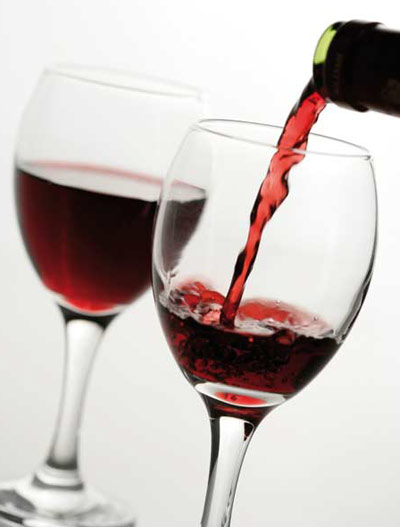 Some people love raising a toast every day, if only to drink to their health. What they forget is that wine is a form of alcohol—and alcohol is NOT a health food. So what about the notions of wine being good for health? They come from ‘resveratrol’, an ingredient found in red wine that is supposedly good for our cardiovascular system and also has good amounts of antioxidants. But before you get all excited reading this, the benefits of resveratrol have not been validated because out of all the studies so far, none have been carried on humans. Besides, studies indicate that the amount of resveratrol present in a glass of red wine is too little to help. Incidentally, the benefits of resveratrol can also be obtained from other natural foods such as red grapes, boiled peanuts and regular exercise.
Some people love raising a toast every day, if only to drink to their health. What they forget is that wine is a form of alcohol—and alcohol is NOT a health food. So what about the notions of wine being good for health? They come from ‘resveratrol’, an ingredient found in red wine that is supposedly good for our cardiovascular system and also has good amounts of antioxidants. But before you get all excited reading this, the benefits of resveratrol have not been validated because out of all the studies so far, none have been carried on humans. Besides, studies indicate that the amount of resveratrol present in a glass of red wine is too little to help. Incidentally, the benefits of resveratrol can also be obtained from other natural foods such as red grapes, boiled peanuts and regular exercise.
Our verdict: If you don’t drink wine already, good for you—it’s not worth starting the habit. If you already drink wine, limit your indulgence to two small glasses per day, and not a drop more.
Is diet cola a better alternative?
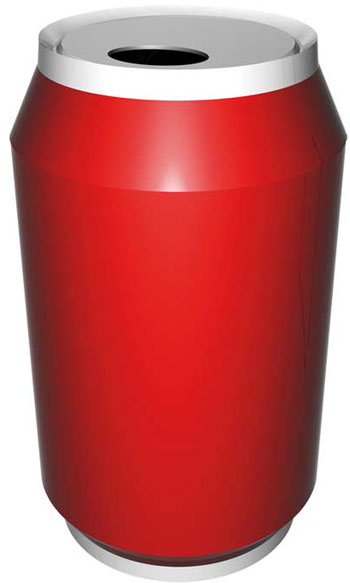 To begin with, we hope you’re not a big fan of aerated drinks—they have little goodness in them. If you must have cola, go for the regular variety and stay away from the so-called ‘diet colas’. Here’s why.
To begin with, we hope you’re not a big fan of aerated drinks—they have little goodness in them. If you must have cola, go for the regular variety and stay away from the so-called ‘diet colas’. Here’s why.
If you reach out for a diet cola because you’re conscious about your weight, then we encourage you to read the label on the can. Diet colas contain aspartame, an artificial sweetener that is used in place of regular sugar. Aspartame is fast earning the notoriety of causing weight gain rather than weight loss in those who consume too much of it.
Also, the danger in having diet cola instead of the regular cola is that because you think it’s a healthier option, you end up drinking a lot more than you would otherwise. Having diet colas may make you feel that you’re consuming fewer calories, but it’s all in the mind. You’re actually causing more harm than good.
For those who pick a diet cola to avoid caffeine or sugar, here’s more bad news. Researchers have found that indiscriminate use of aspartame-based artificial sweeteners could contribute to type-2 diabetes. When aspartame breaks down in the body, it releases compounds that cross the blood-brain barrier to cause toxicity. It can also cause nerve disorders and certain forms of cancers.
Our verdict: All aerated drinks are devoid of health benefits. If possible, avoid all colas, especially the ‘diet’ variety.
Is chocolate my friend?
Reading news reports that declare dark chocolate as being good for the heart makes you happy. Trouble is, many of you develop a visual lacuna and miss the word ‘dark’ before chocolate. Yes, it’s not any chocolate but only the dark variety that’s your heart’s pal—then again, only in small quantities.
You ought to know that it’s the cocoa in chocolate that is enriched with flavonoids, which have an antioxidant effect on the body. And the darker the chocolate, the more cocoa it contains. All other chocolate is mixed with milk, sugar and flour—it ends up being loaded with calories but stripped of its goodness.
Our verdict: If you eat chocolates for their health benefits, stick to only the really dark ones and restrict your intake to a few small pieces a day.
Is Soy a hero or a villain?
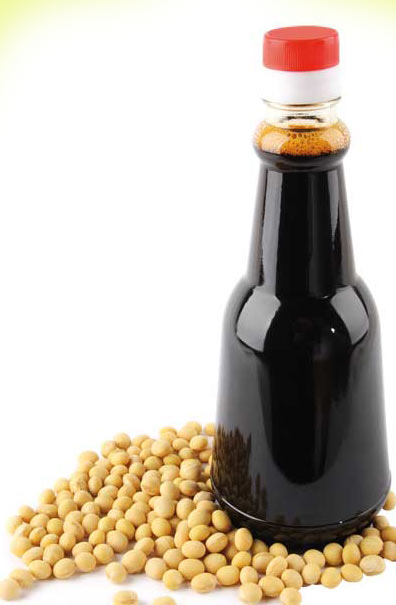 In the past few years, there has been an increase in the consumption of soy products, especially among women and recently-turned vegetarians. Soy is being promoted as a wonder food. It is said to be good for the heart [it lowers blood cholesterol levels], prevents osteoporosis [by increasing bone density] and prostate cancer, and brings relief in menopausal symptoms. But there are many who have turned a blind eye to soy, most of them happen to be men and here’s why. Soy contains phytoestrogens that have an effect on the body that may be faintly similar to oestrogen, which among other things, could cause an increase in the size of breasts. It’s this connection between soy and oestrogen that has led to paranoia among men, who prefer avoiding it all together. However, there has been absolutely no evidence till date of soy causing breast enlargement in men or, for that matter, even in women.
In the past few years, there has been an increase in the consumption of soy products, especially among women and recently-turned vegetarians. Soy is being promoted as a wonder food. It is said to be good for the heart [it lowers blood cholesterol levels], prevents osteoporosis [by increasing bone density] and prostate cancer, and brings relief in menopausal symptoms. But there are many who have turned a blind eye to soy, most of them happen to be men and here’s why. Soy contains phytoestrogens that have an effect on the body that may be faintly similar to oestrogen, which among other things, could cause an increase in the size of breasts. It’s this connection between soy and oestrogen that has led to paranoia among men, who prefer avoiding it all together. However, there has been absolutely no evidence till date of soy causing breast enlargement in men or, for that matter, even in women.
Our verdict: Soy in any of its natural forms—flour, miso, milk, tofu, chunks—is healthy and can be eaten safely, without the fear of adverse reactions. However, don’t go overboard and make it a staple. And don’t rely on it as your only source of protein.
Can running harm my knees?
 There’s a widespread notion that long-distance running can cause irreparable damage to the knees and lead to early onset of osteoarthritis. Although it sounds plausible, it’s not true.
There’s a widespread notion that long-distance running can cause irreparable damage to the knees and lead to early onset of osteoarthritis. Although it sounds plausible, it’s not true.
The probability of a runner developing arthritis is no more than a non-runner. If anything, running actually helps your knees by keeping the cartilage healthy. It helps build strong muscles and ligaments, which reduces the strain on your knees, thereby preventing osteoarthritis.
However, what can actually harm you is over-training, injury while running or using improper footwear while running. But these risks are just as much with any other sport.
Our verdict: Nature has designed our knees to withstand the pressures of running. If you love running, but don’t run because of the fear that it will damage your knees or cause arthritis, it’s time to get, set and go.
This yoga or that yoga?
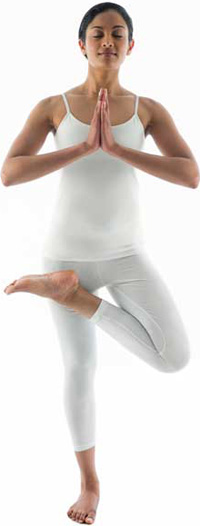 There’s no doubt that traditional yoga offers remarkable benefits. But the same cannot be said about the many different versions of yoga that have emerged in the recent years. Moreover, yoga is now increasingly being marketed as a solution for specific goals such as weight loss or strength training.
There’s no doubt that traditional yoga offers remarkable benefits. But the same cannot be said about the many different versions of yoga that have emerged in the recent years. Moreover, yoga is now increasingly being marketed as a solution for specific goals such as weight loss or strength training.
No wonder, yoga has metamorphosed into its various forms—Power yoga, Vinyasa, Bikram yoga and Yogalates among many others. Most of these focus only on asanas—the physical aspect. It’s worthwhile to know that, traditionally, yoga has been perceived as a vehicle for self-realisation. Physical training is only a part of the practice, and fitness and weight loss are merely happy side-effects.
Indeed, traditional forms of yoga [such as Asthanga yoga or Iyengar yoga] are known to help cure chronic back pain, control rheumatoid arthritis, cope better with cancer and reduce stress and anxiety. Practitioners say that traditional yoga works better than regular exercise in improving general health. Pranayama or breath control techniques are finding favour even among medical experts.
If you ask us, the benefits of traditional yoga are broad, the reason being its holistic approach that aims at establishing the mind-body-spirit connection. This is not to say that other forms of yoga are useless—they help too [their growing popularity is testimony to their efficacy]. But being derivatives of yoga, their scope and effectiveness is limited.
Our verdict: If you’re practising one of the many new versions of yoga, we strongly recommend that you explore the traditional yoga forms too.
Is it necessary to guzzle 8 glasses of water everyday?
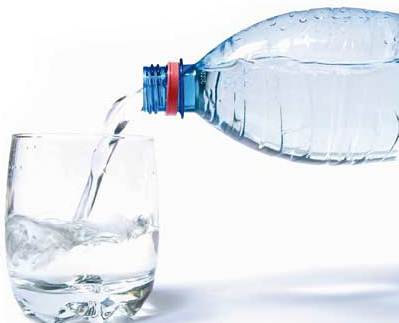 It is generally recommended that 8 – 10 glasses or 2.5 litres of water is what you must drink every day. However, since our systems function differently from each other and our lifestyles aren’t the same, how can the 8 – 10 glasses rule be applied to all? For some, this seems too little while others find it difficult to drink even half of this recommended amount.
It is generally recommended that 8 – 10 glasses or 2.5 litres of water is what you must drink every day. However, since our systems function differently from each other and our lifestyles aren’t the same, how can the 8 – 10 glasses rule be applied to all? For some, this seems too little while others find it difficult to drink even half of this recommended amount.
Here’s a test to find out how you’re doing on the ‘water’ front: You’re drinking too much if you find yourself heading towards the toilet more than once every two hours or so—and it’s worse if your urine is clear.
Understand this: When experts recommend drinking 2.5 litres of water per day, the amount also includes fluid content from food and other drinks. All fluids contain water that is absorbed by the body. So fluid from juices, tea, coffee and colas also adds up to your total water consumption. [But this doesn’t mean that you can avoid water altogether.]
The primary factor that determines your water requirement is the amount you lose—through sweat, urine, or illness [e.g. vomiting]. A person who does not lose much water and has a diet that includes foods with high moisture content will require less water for optimum functioning. Or, a person who doesn’t exercise but lives in a hot and humid environment will sweat a lot and require more water.
Our verdict: Drinking up to eight glasses [about 2 litres] a day is safe—it won’t overburden your kidneys. If you feel thirsty even after that, listen to your body—drink more.
What’s so bad about Trans Fats?
Until a few years ago, we were goaded to avoid saturated fats. Recently, a new villain has debuted on the food circuit—trans fat. And you may have noticed that food manufacturers rather than physicians are making more noise about it. When a food is low in trans fats, the packaging ensures that you don’t miss the claim.
To understand why they have been demonised to such an extent, let’s first understand what trans fats are. When vegetable oils are treated to a chemical process, and hydrogen atoms are infused into it and then compressed, the result is a trans fat. Trans fats stay solid even at room temperature. According to eminent cardiologists, trans fats are responsible for causing artery blockages leading to heart diseases.
Many of the popular foods such as margarine, cakes, pastries, French fries, vanaspati, doughnuts and biscuits contain trans fats. In India, vanaspati is commonly used for frying foods. So when you eat those mouth-watering samosas and bhaturas, you’re not just adding calories but also heart-clogging bad fats.
The reason trans fats are used even though they are unanimously considered unhealthy is that they increase the shelf life of products.
You may have noticed that recently many products proudly announce that they are ‘zero trans fat’. This declaration means that they contain less than 0.5g trans fat per serving. Since it is a negligible quantity, the FDA has allowed such foods to be labelled as zero trans fat. They are certainly a better choice than foods with low trans fat.
With all fingers pointing at trans fat, does it make saturated fats the lesser of the two evils? Yes, but it is still an evil. Hence, we recommend avoiding both—saturated and trans fats.
Our verdict: The best fats for you are monounsaturated and polyunsaturated fats. Replace trans fats used in cooking by oils or ghee. If you are confused between oils, ghee, vanaspati and margarine, stick to this rule: if it’s solid at room temperature, avoid it.
Are probiotics pro-health?
 Your intestines contain more than hundred trillion bacteria—that’s more than the number of cells in the human body. Some of these bacteria are good and some are not. Trouble begins when the bad ones outnumber the good ones and upset the intestinal balance. The equilibrium is also disturbed when we consume antibiotic medicines, which not only kill the disease-causing germs but also the good bacteria. And when this happens, we experience bloating, indigestion or diarrhoea. That’s why you’re always given good bacteria [probiotics] in the form of capsules along with your antibiotic medicine. Probiotics are good bacteria that aid digestion and absorption of food and prevent intestinal diseases such as irritable bowel syndrome [IBS]. Normally, there are 400 different types of probiotic bacteria in the colon, the strongest being lactic acid bacteria, a strain found in yoghurt. These good bacteria can only be consumed in foods, not by themselves.
Your intestines contain more than hundred trillion bacteria—that’s more than the number of cells in the human body. Some of these bacteria are good and some are not. Trouble begins when the bad ones outnumber the good ones and upset the intestinal balance. The equilibrium is also disturbed when we consume antibiotic medicines, which not only kill the disease-causing germs but also the good bacteria. And when this happens, we experience bloating, indigestion or diarrhoea. That’s why you’re always given good bacteria [probiotics] in the form of capsules along with your antibiotic medicine. Probiotics are good bacteria that aid digestion and absorption of food and prevent intestinal diseases such as irritable bowel syndrome [IBS]. Normally, there are 400 different types of probiotic bacteria in the colon, the strongest being lactic acid bacteria, a strain found in yoghurt. These good bacteria can only be consumed in foods, not by themselves.
According to gastroenterologist, Amit Maydeo [Institute of Advanced Endoscopy], “Probiotics are for those who are experiencing trouble in digestion and the right type of probiotic has to be chosen after consulting your physician”. If you’re blessed with normal digestion and have no health problems, careless consumption of artificial probiotics would be an unnecessary interference in the process. A smarter way of helping your digestive system function efficiently, when all is working well, is to have 1 – 2 cups of home-made yoghurt or a glass of buttermilk every day. Yoghurt contains enough good bacteria and is a natural probiotic.
As far as products fortified with probiotics are concerned, these claim to contain concentrated doses of healthy bacteria. Of course, there’s no way to confirm if what’s mentioned on the package is what you’re actually getting. But, fortified or not, all yoghurt contains probiotics.
Our verdict: Include natural probiotics such as yoghurt, asparagus and artichokes in your diet. The extra probiotics help only if you have troubled digestion. But if you are suffering from an active infection or an immuno-compromised condition, consult a doctor before consuming probiotics.
Replace trans fats used in cooking by oils or ghee
Is the microwave safe?
 Whether it’s for reheating food, making popcorn, or even preparing full meals, microwave ovens seem like a blessing—especially when you are hard-pressed for time. Most nutritionists too favour microwave cooking since it requires minimum oil. Yet, many news reports point a finger at the microwave oven for stripping food of its nutrition.
Whether it’s for reheating food, making popcorn, or even preparing full meals, microwave ovens seem like a blessing—especially when you are hard-pressed for time. Most nutritionists too favour microwave cooking since it requires minimum oil. Yet, many news reports point a finger at the microwave oven for stripping food of its nutrition.
It’s true that food that has been cooked/reheated in a microwave loses some nutrition, but then traditional methods of cooking such as deep frying are guilty of the same crime. When you compare microwaving to steaming, boiling or stir-frying, microwaves fare rather poorly. It was observed in a study that when cooked in a microwave, broccoli lost about 97 per cent of its nutrients as against only 11 per cent when it was steamed.
Microwaving food robs it of its moisture, drying it up, which is evident to anyone who has ever used a microwave. There have also been reports that microwaves leak electromagnetic radiations. However, as long as the oven is properly maintained, you needn’t worry about this. If the doors or seals of your microwave are undamaged and its hinges and latches too function properly, the waves are contained within. Shutting off the microwave when not in use is a good habit—the radiations disappear when the appliance is switched off.
Our verdict: For your regular cooking, rely on your pressure cooker or grill. Use microwaves occasionally, as a convenience. Also, when reheating food, use microwave-safe glass; don’t use plastic containers as the plastic leaks into the food, making it toxic.
food that has been cooked or reheated in a microwave loses some nutrition
Is fish curry a cause of worry?
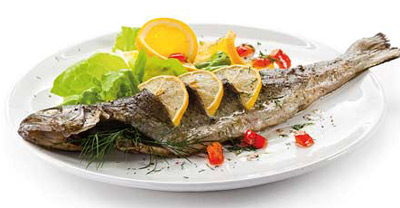 Fish is an excellent source of protein, antioxidants and, of course, omega-3 fatty acids. Known to help the heart and the brain, omega-3 fatty acids also protect against many diseases such as asthma and cancer. Some studies suggest that those who eat fish tend to consume less meat and cheese, and eat more healthy foods such as vegetables and brown rice.
Fish is an excellent source of protein, antioxidants and, of course, omega-3 fatty acids. Known to help the heart and the brain, omega-3 fatty acids also protect against many diseases such as asthma and cancer. Some studies suggest that those who eat fish tend to consume less meat and cheese, and eat more healthy foods such as vegetables and brown rice.
But fish are also the source of other undesirable ingredients—harmful contaminants such as methyl mercury and polychlorinated biphenyls [PCBs]. A study published in Journal of American Medical Association [JAMA] found that seafood contains methyl mercury, selenium, pesticides and dioxides. High levels of mercury hurt the nervous system. In pregnant women, they might even impair the development of the foetus. So does one eat fish for its numerous benefits or avoid it for the deadly contaminants?
The JAMA study revealed that the benefits of eating fish outweighed the risks due to contaminants. Also, removing the skin and fat before cooking can help minimise your exposure to the contaminants.
Our verdict: Eat no more than 2 – 3 servings of fish per week. Avoid eating fish that are known to have a high mercury content—shark, sword fish and king mackerel to name a few. If you’re pregnant or lactating, avoid eating fish.
Can I diet my way to detoxification?
A detoxification diet is when you deliberately change your eating habits for a fixed interval to exclude foods that are unhealthy, include those that are natural, and consume plenty of fluids. The proponents of detox accentuate its merits to a great extent—so much so that if you’re not on one, it can make you feel that you’re missing out on something that is vital for your good health.
In our opinion, the merits of detox are exaggerated. Gorging on fatty, sugary and unhealthy food with the hope that a week or two of detox will miraculously ‘flush’ out the toxins from your body is a myth. Health researchers have, time and again, failed to find any noteworthy benefits of detox. In fact, many have concluded that detox diets don’t offer any benefits whatsoever. According to Michelle May, MD, author of Am I Hungry? What to Do When Diets Don’t Work, “A day on a detox diet program probably won’t hurt you, but there’s little point in following these restrictive diets—and they can do far more harm than good.”
A study was conducted on two sets of people—those who were on detox and those who weren’t. At the end of the study, they found that both the groups had the same levels of toxins. This means that going on a detox makes no difference to the body; it fails to register the change in diet. The study proved that our kidneys and liver are capable of functioning well even without a detox regime.
A detox programme can often be counter-productive. For example, because you’re eating too little, it’s likely that your body might go into starvation mode, slowing down your metabolism and causing accumulation of fat. What’s more, when you go on a detox diet, you tend to oscillate between eating healthy for a while and then swinging to the other extreme. In our opinion, healthy eating is a lifelong commitment—that’s why it’s called lifestyle. Detox may help you become more aware of what you’re putting into your body, but we don’t advise that you look at it as a solution for weight loss or good health.
Our verdict: Forget temporary detox diets and try detoxifying your entire lifestyle; this way, you’ll never need detox programmes.
The key
If there are still some traces of confusion left in your mind, just embrace one philosophy: Moderation. No one understands your health and wellbeing as well as you do. If the health advice you read or receive contradicts your own experience, then, by all means, ignore it, however well-meaning it may be. But make sure that you’re always treading the moderation line. Remember, even too much of a good thing doesn’t remain good—it harms.
 Spot an error in this article? A typo maybe? Or an incorrect source? Let us know!
Spot an error in this article? A typo maybe? Or an incorrect source? Let us know!
